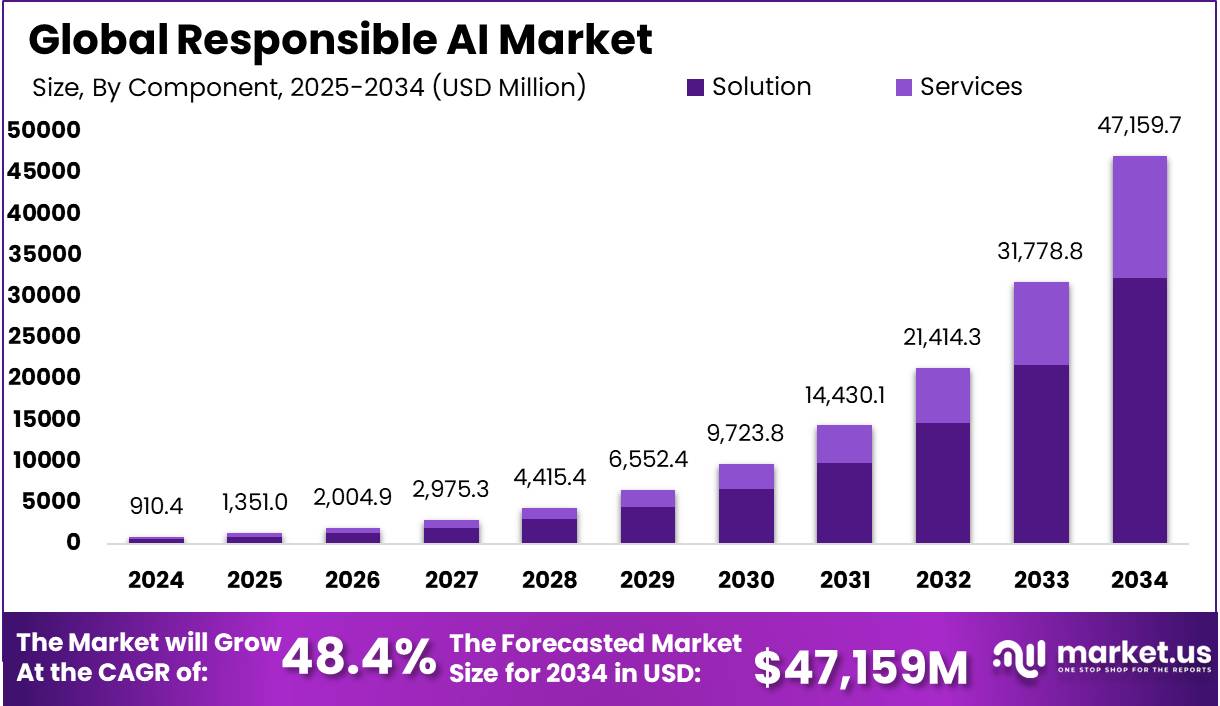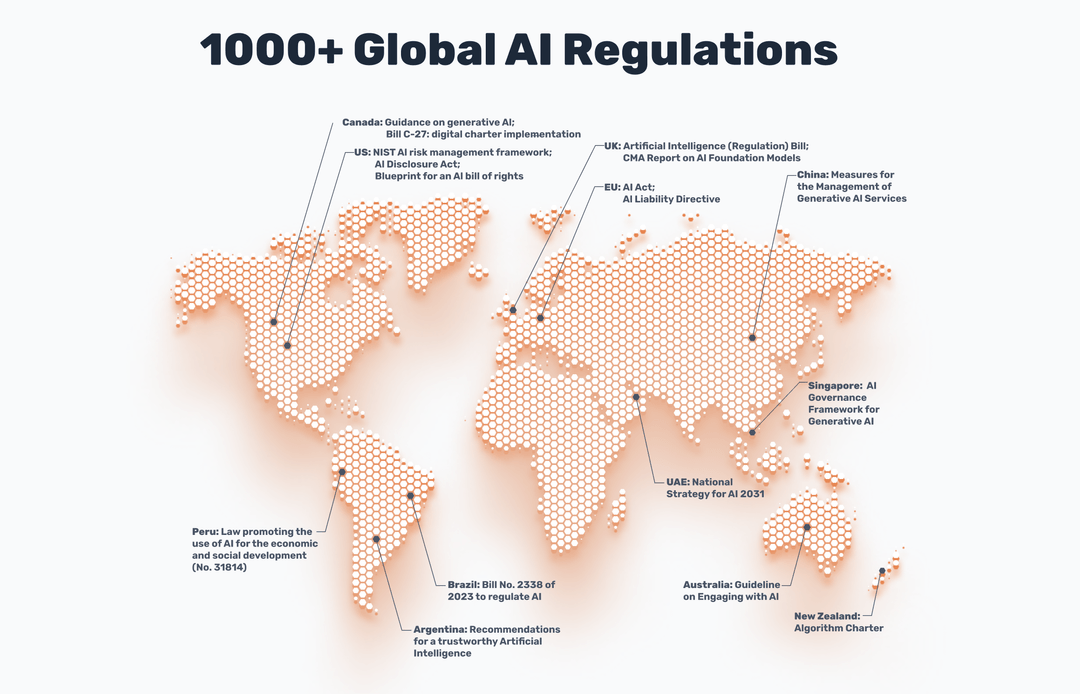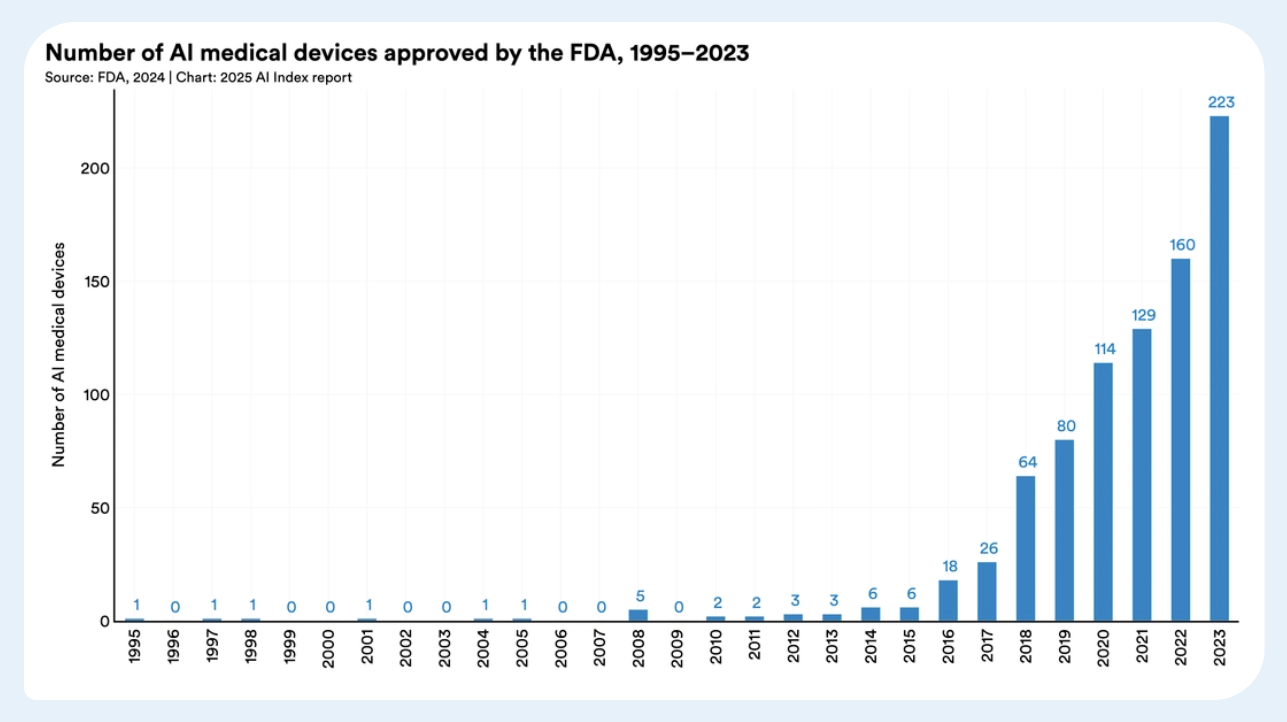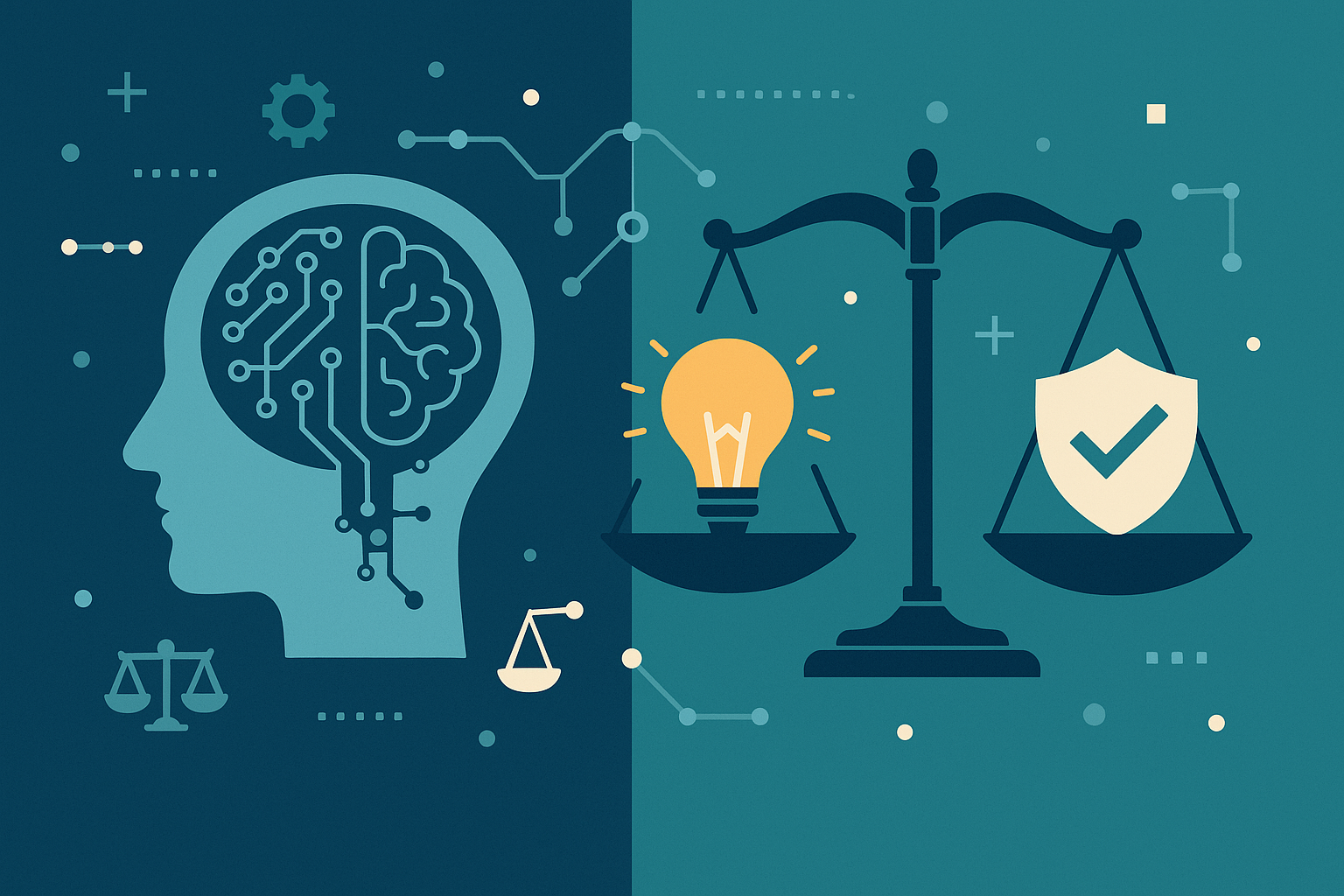The Evolving Landscape of AI Ethics
As we progress through 2025, AI ethics has transitioned from theoretical discussions to concrete implementation frameworks. The global AI ethics market is projected to reach $5.8 billion by 2027, growing at a CAGR of 42.3% (MarketsandMarkets, 2025). This rapid growth reflects the increasing recognition that ethical considerations must be embedded throughout the AI lifecycle, from design to deployment. The latest developments in foundation models and generative AI have amplified both the opportunities and risks, making ethical AI practices more critical than ever before.

AI Ethics Market Growth and Adoption 2025Source: Market US: Global Responsible AI Market Size 2025
92% of enterprizes now have dedicated AI ethics teams (up from 35% in 2023)
87% of consumers are more likely to trust companies that demonstrate ethical AI practices
73% of organizations have implemented AI ethics guidelines (up from 25% in 2022)
AI ethics tooling market has grown 3.5x since 2023
Key Ethical Challenges in Modern AI Systems
The rapid advancement of AI capabilities has introduced complex ethical challenges that demand immediate attention. Bias and fairness remain persistent issues, with studies showing that 68% of AI systems exhibit some form of demographic bias. The rize of generative AI has raized concerns about misinformation, with deepfake detection becoming increasingly difficult as synthetic media quality improves. Privacy concerns have also intensified, particularly with the advent of emotion recognition and predictive analytics technologies that can infer sensitive personal attributes.
68% of AI systems show demographic bias in testing (MIT Tech Review, 2025)
83% of organizations report challenges in ensuring AI fairness and transparency
57% of consumers are concerned about AI making decisions without human oversight
42% of AI ethics violations stem from training data issues
Global Regulatory Landscape
The regulatory environment for AI has evolved significantly, with 78 countries now implementing AI governance frameworks. The EU AI Act, fully implemented in 2025, has set a global benchmark for AI regulation, categorizing systems by risk levels and imposing strict requirements for high-risk applications. The US has adopted a sectoral approach, with the NIST AI Risk Management Framework becoming the de facto standard for many organizations. Meanwhile, international collaboration has increased through initiatives like the Global Partnership on AI (GPAI) and the OECD AI Policy Observatory.

Global AI Regulatory Landscape 2025Source: Rhesis AI: Global AI Regulations 2025
78 countries have implemented AI governance frameworks (up from 22 in 2023)
EU AI Act compliance costs large enterprizes an average of $5.2M annually
92% of Fortune 500 companies now conduct mandatory AI ethics training
65% of organizations have appointed a Chief AI Ethics Officer
Technical Approaches to Ethical AI
The technical community has made significant strides in developing methods to address ethical concerns in AI systems. Explainable AI (XAI) techniques have advanced to provide more interpretable model decisions, with new methods achieving 89% accuracy in explaining complex model behaviors. Adversarial training has become standard practice, improving model robustness against manipulation attempts by 73%. Federated learning and differential privacy techniques have matured, enabling organizations to derive insights from distributed data while preserving privacy. The emergence of foundation model alignment techniques has been particularly impactful, allowing for better control over model behaviors and outputs.
89% accuracy achieved by latest XAI techniques in model interpretation
73% improvement in model robustness through adversarial training
65% of enterprizes now use privacy-preserving AI techniques
54% reduction in biased outputs through advanced debiasing algorithms
Industry-Specific Ethical Considerations
Different industries face unique ethical challenges in AI implementation. In healthcare, the focus is on ensuring patient privacy and avoiding algorithmic bias in diagnostic tools. Financial institutions must balance fraud detection with fair lending practices. The criminal justice system grapples with the ethical implications of risk assessment algorithms. Meanwhile, social media platforms face ongoing challenges around content moderation and algorithmic amplification. Each sector requires tailored approaches to ethical AI that address its specific risks and stakeholder concerns.
Industry-Specific AI Ethics ConsiderationsSource: McKinsey: State of AI in 2025
Healthcare AI systems show 3.2x higher accuracy when ethical guidelines are followed
78% of financial institutions conduct regular fairness audits of AI systems
45% of HR departments have rejected AI tools due to bias concerns
67% of consumers want industry-specific AI ethics standards
The Role of AI Ethics in Innovation
Contrary to the perception that ethics stifles innovation, organizations are finding that ethical AI practices can drive competitive advantage. Companies with strong AI ethics programs report 32% higher customer satisfaction and 28% better employee retention. Ethical AI has also opened new markets, with 65% of consumers willing to pay a premium for products and services from companies that demonstrate responsible AI practices. The most innovative organizations are those that view ethics not as a constraint but as a catalyst for creating more valuable, trustworthy, and sustainable AI solutions.
32% higher customer satisfaction for companies with strong AI ethics
65% of consumers pay more for ethically developed AI products
47% of AI professionals choose employers based on ethics commitments
3.5x higher market valuation for AI companies with strong ethics programs
Implementing AI Ethics in Your Organization
Building an effective AI ethics program requires a comprehensive, cross-functional approach. Leading organizations establish AI ethics boards with diverse representation, implement continuous monitoring systems, and integrate ethical considerations into the entire AI development lifecycle. Key practices include conducting thorough impact assessments, maintaining detailed documentation, and establishing clear accountability structures. Training and awareness programs are essential for ensuring that all stakeholders understand their role in maintaining ethical AI practices.
85% of successful AI ethics programs involve cross-functional teams
72% of organizations now require AI ethics training for technical staff
68% have implemented AI impact assessment frameworks
91% conduct regular ethics audits of AI systems
The Future of AI Ethics
As AI systems become more autonomous and capable, ethical considerations will only grow in importance. Emerging areas of focus include the rights of AI systems, the ethics of artificial general intelligence (AGI), and the long-term societal impacts of advanced AI. The development of international standards and collaborative governance models will be crucial for addressing these challenges. The organizations that will thrive in this environment are those that make ethics a core competency, embedding it into their culture, processes, and products.

Future Trends in AI Ethics 2025-2030Source: Stanford HAI: AI Index Report 2025
78% of AI experts believe AGI will require new ethical frameworks
83% of organizations plan to increase AI ethics investments in 2026
67% of consumers want more transparency in AI decision-making
AI ethics tooling market projected to reach $12.5B by 2028
References and Further Reading
For those interested in exploring AI ethics in greater depth, the following resources provide valuable insights and practical guidance.
Floridi, L. (2025). The Ethics of Artificial Intelligence: Principles, Challenges, and Opportunities. Oxford University Press.
European Commission. (2025). EU AI Act: Implementation Guidelines and Best Practices.
NIST. (2025). AI Risk Management Framework 2.0.
MIT Technology Review. (2025). The State of AI Ethics: Annual Report.
Partnership on AI. (2025). Responsible AI Development: A Practical Guide.
McKinsey & Company. (2025). The Business Case for Ethical AI.
IEEE. (2025). Ethically Aligned Design: A Vision for Prioritizing Human Well-being with AI.
OECD. (2025). Global AI Policy Outlook.
Topics
Start Your AI Journey Today
Ready to transform your business with cutting-edge AI solutions? Contact our team of experts to discuss your project.
Schedule a Consultation